A woman looks out from a window in Srinagar, during a protest against the recent killings in Kashmir: photo by Danish Ismail/Reuters, 16 September 2016
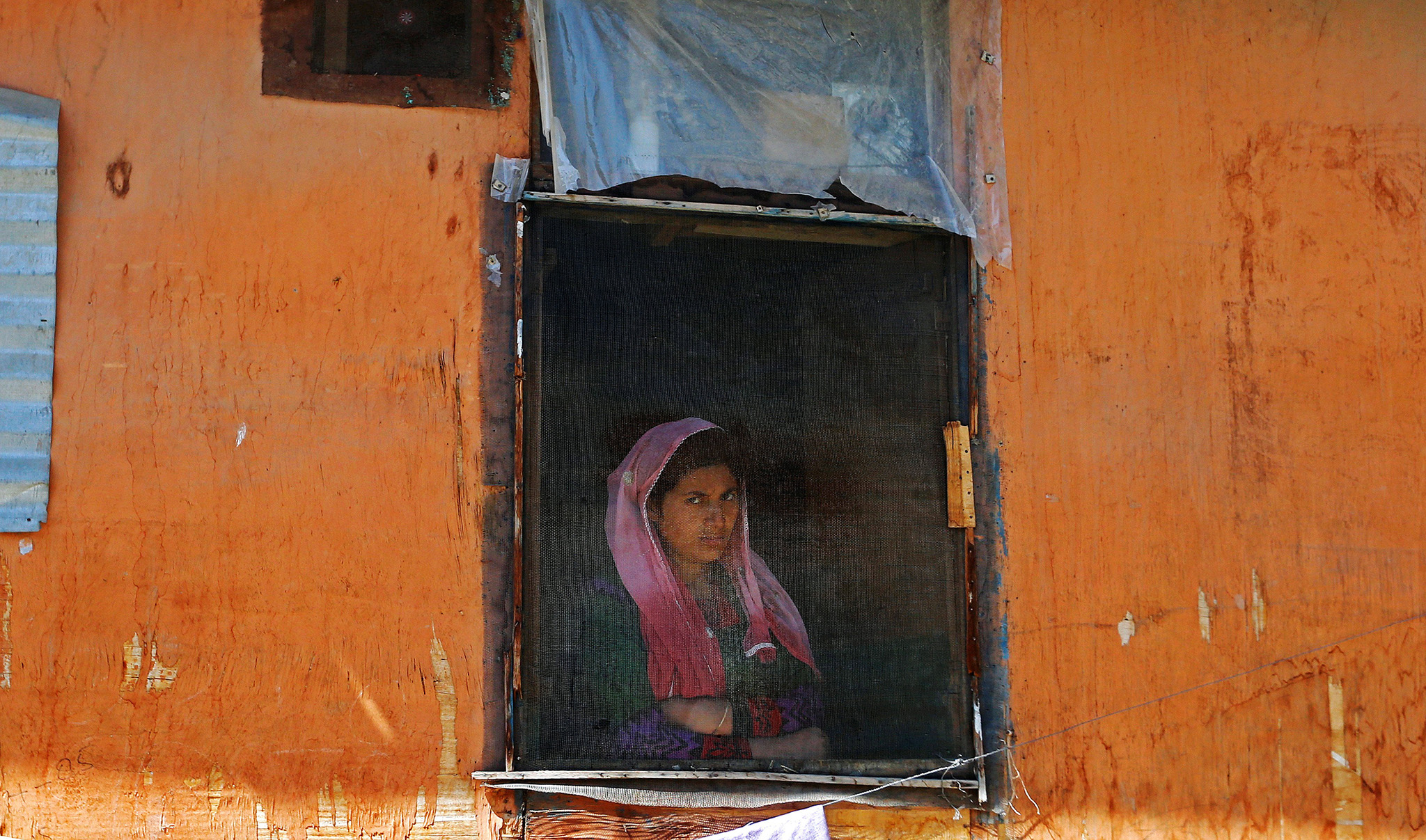

A woman looks out from a window in Srinagar, during a protest against the recent killings in Kashmir: photo by Danish Ismail/Reuters, 16 September 2016
Lockdown

Kashmir remains shut for 70 consecutive days: image via Zee News Verified account @Zee News, 16 September 2016

In Kashmir, an Eid of confinement and pellets, death and mourning [A policeman fires a teargas shell towards demonstrators during a protest against the recent killings in Kashmir, in Srinagar: photo by /Danish Ismail/Reuters, 13 September 2016]: image via the Wire @thewire_in, 16 September 2016
In Kashmir, an Eid of Confinement and Pellets, Death and Mourning: What Eid is this, ask people in the Valley as an unprecedented
curfew and communication blockade cut them off from each other – and
from the spirit of a much-loved festival: Fahad Shah, The Wire, 16 September 2016
Srinagar: It was a silence of mourning. A population
of hundreds of thousands, forced to stay indoors on a day when the
Kashmir Valley would otherwise be bustling with people wearing new
clothes –- and smiles on their faces. In the last two months, colours
have acquired a different meaning here: white is for shrouds, green for
flags and red is blood.
For Kashmiris, this Eid was a day of mourning.
The Mehbooba Mufti government imposed the strictest curfew ever in the Valley on the day of Eid Ul Azah. A day before, all mobile phone and internet networks were snapped for 72 hours. Across the Valley, Eidgah grounds – where congregational prayers are offered every year – were deserted, with security forces contingents dotting the fences.
For children, Eid would always mean new clothes, food, receiving Eidi from elders and playing with friends. But this time, children watched TV, slept in the afternoon, played games on their parents’ ‘no network’ mobile phones or attempted in vain to locate news about Kashmir on the national channels.
Nothing moved on the streets of the Valley except the armoured vehicles of the security forces. In several areas, people marched after Eid prayers, but were shot at with pellets, tear gas shells and even bullets by edgy paramilitaries. The pro-azadi leaders of the Hurriyat Conference had asked people to march to the United Nations office in Srinagar. The area around the UN office was sealed with barbed wire and guarded by troops. At around noon, near that spot, a few men from the paramilitary forces stopped me at the barricade and asked, “You want to go that way? You want to pass through that? Today there is a march to the UN. You want to visit the UN?”

Demonstrators shout slogans during a protest against the recent killings in Kashmir, in Srinagar: photo by Danish Ismail/Reuters, 13 September 2016
By afternoon, two civilians were killed on Tuesday
in north Kashmir’s Bandipora and south Kashmir’s Shopian, while dozens
had received injuries across the Valley. Eighty-three people have been
killed since July 8 in protests following the killing
of the popular Hizbul Mujahideen commander, Burhan Wani, in south
Kashmir. More than 11,000 civilians have been injured, including 700 who
have wholly or partially lost their eyesight to the pellets fired
indiscriminately by paramilitary troops on protestors – those throwing
stones and those not – and on bystanders, including, in many cases,
young children. Despite curfew, the civilian upsurge shows no signs of
abating. According to the government, some 4,000 security forces
personnel have sustained injuries in the protests.
Monday, the day before festival, should have seen the markets abuzz with customers, shopping for Eid. Instead, the bakers had put up notices in bold letters: “No bakery available.” The evening before Eid, Mohammad Hussain and his wife were returning from their relatives’ house in downtown Srinagar when a group of young demonstrators stopped them. “Are you returning from a bakers shop? Had you gone shopping?” the young boys had asked. “They told us to open our car trunk and checked if we were carrying any shopping bags,” said Hussain, a businessman.
At Srinagar’s Eidgah ground, where sheep and goats are sold to people as sacrificial animals every year, only the government forces were visible this Eid. The ground is also the main venue for Eid prayers and from where thousands of people had marched towards the city centre at Lal Chowk during the 2010 uprising.

A protester throws a stone towards Indian police during a protest against the recent killings in Kashmir, in Srinagar: photo by Danish Ismail / Reuters, 13 September 2016
With no mode of communication other than landlines, people couldn’t
wish each other this Eid. Breaking away from their long family tradition
of visiting the Eidgah for the festival, 16-year-old Abrar Ahmad
accompanied his father for Eid prayers at a nearby mosque outside their
house in Srinagar’s Nawa Kadal. Outside, four armoured police vehicles
were parked, along with a contingent of forces. Walking briskly, people
went back to their homes, where they remained confined. “I have been at
home all day. In the afternoon I slept. What Eid is this? There was
nothing. Only the curfew,” said Abrar.
Every Eid, children burst firecrackers to celebrate. But this year, the sound of firecrackers was replaced by tear gas shells, pellets and bullets. Abrar said, “Who will buy firecrackers this time? Where will anyone get them? We can’t even go out of the gate.”
A few kilometres away from Srinagar’s Eidgah, Abdul Majeed Khan and his son Umar Majeed Khan had gone to offer prayers at 8:30 am in Batmallo, following the timing given by the pro-azadi leaders for everyone. But Umar, 17, didn’t get to return home. He is now lying on a hospital bed wearing blackout sunglasses in the ophthalmology ward of SMHS hospital in Srinagar.
“After prayers, we took out a peaceful march led by the Imam,” said Khan, a car mechanic. “My son and I also joined and the police was watching us. Everything was peaceful; we went to one end of road and turned back. But suddenly the forces started firing pellets. In the chaos, I couldn’t hold on to my son.”
By then, Umar was hit by pellets in the eyes and chest. Standing next to his son at the hospital, an angry Khan said, “I have no regrets that my son was hit. He will be better and will now go out to protest with faith on Allah and his Prophet. We shall win one day. India has to leave from here, today or tomorrow.”
At the hospital, for volunteers like 25-year old Basheer Ahmad Lone, Eid was just another day, when the injured were expected. A bus conductor on normal days, Lone has been volunteering at the hospital since July 8. “It was no Eid for me. I arrived at the hospital at 6 am like everyday and around 20 injured were brought,” said Lone.
Among the injured, was 15-year-old Yasir Ahmad, from Handwara. After offering prayers, Yasir had returned home. He had left to visit his uncle who was going to sacrifice a lamb, but also met a small procession along the way. “A cop directly shot at him. When the first bullet hit him in the crotch, he was still standing. But then, when the second bullet hit, he fell down,” says Haseena Banu, his aunt who has been looking after him since his mother had passed away when he was only 18 months old.
While Yasir’s testicles are damaged after being hit, his relative, 44-year-old Ghulam Mohiudin Waar has a bandaged right eye and is lying on a bed in the same hospital. A father of four children, Mohiudin was going to offer noon prayers when the forces started firing and pellets hit his eyes. “What government is this? They kill people. We want freedom, we don’t want development, or anything, but freedom,” he said.
Back home in Handwara, Mohiudin’s children and wife were waiting for him to return for Eid lunch. But their wait ended with news of his pellet injury. His neighbours brought him to the SMHS hospital. “My family hasn’t seen me yet. And I don’t even know if they are alive or not. There are no phones so I can’t even speak to them,” said Mohiudin.

#Kashmir: thousands of people
including women march towards home of martyred youth, Mustafa Mir: image
via PTV World @WorldPTV, 15 September 2016
.
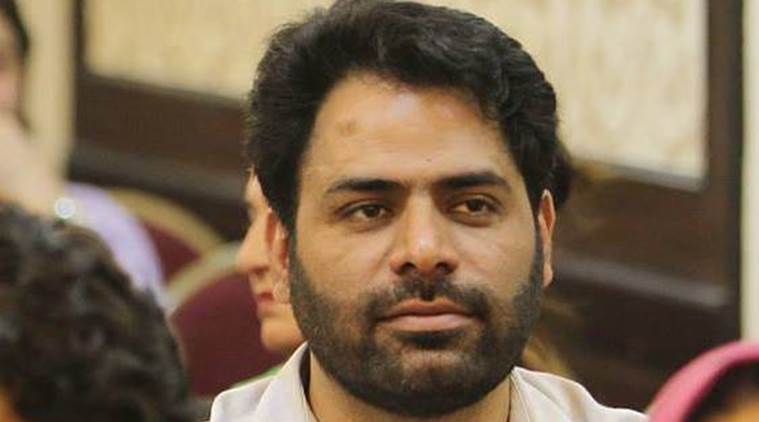
The family members said that the police officials from Kothibagh Police station called him in the evening asking him to visit the police station because Superintendent of Police wanted to speak to him: photo via Facebook/Khurram Parvez, 16 September 2016
Khurram Pervez (39), who is presently Chairperson of Asian Federation Against involuntary Disappearances (AFAD) and Program Coordinator of Jammu Kashmir Coalition of Civil Society (JKCCS), has been kept in Kothibagh Police Station. Despite repeated attempts, the police officers were not available to comment on the arrest.
This is the first such high profile arrest of a human rights activist in Kashmir in the recent past and is seen as part of government’s crackdown on civil society in the valley that is critical of the Mehbooba Mufti led government’s use of excessive force to quell the current uprising.
According to Pervez’s family members, he had returned home from Delhi this morning.
The family members said that the police officials from Kothibagh Police station called him in the evening asking him to visit the police station because Superintendent of Police wanted to speak to him. “He called the SP and told him he will come at 10 am tomorrow,’’ a relative said. “Late in the night, a police party came to his home, asking him to accompany them to the police station. There wasn’t any police officer in the police station at that time. They told us that he would have to stay in the police station”.
Pervez’s family members said that the police didn’t give any reasons for the arrest.
On Wednesday, Pervez was stopped by Immigration authorities at IGI airport in Delhi and disallowed to board a flight to Geneva. “At around 1.30 am, as I was about to board my flight to Geneva, I was stopped at immigration and detained for one-and-a-half hours. The officer had stamped my boarding pass but they subsequently disallowed me to proceed to board the flight,’’ he had told The Indian Express. Pervez had also said that he was “only orally informed that immigration officers had instructions that he was not to be arrested, but that he should not be allowed to leave the country”.

The family members said that the police officials from Kothibagh Police station called him in the evening asking him to visit the police station because Superintendent of Police wanted to speak to him: photo via Facebook/Khurram Parvez, 16 September 2016
JandK Police arrests human rights activist Khurram Parvez: This is the first such high profile arrest of a human rights activist in Kashmir in the recent past.: The Indian Express, New Delhi, 16 September 2016
The JandK Police have arrested a well-known Kashmiri human rights
defender from his home in Srinagar late this evening. This is a day
after he was stopped in Delhi by authorities to board a flight to Geneva
where he was going to attend the ongoing United Nations Human Rights
Commission (UNHRC) session.
Khurram Pervez (39), who is presently Chairperson of Asian Federation Against involuntary Disappearances (AFAD) and Program Coordinator of Jammu Kashmir Coalition of Civil Society (JKCCS), has been kept in Kothibagh Police Station. Despite repeated attempts, the police officers were not available to comment on the arrest.
This is the first such high profile arrest of a human rights activist in Kashmir in the recent past and is seen as part of government’s crackdown on civil society in the valley that is critical of the Mehbooba Mufti led government’s use of excessive force to quell the current uprising.
According to Pervez’s family members, he had returned home from Delhi this morning.
The family members said that the police officials from Kothibagh Police station called him in the evening asking him to visit the police station because Superintendent of Police wanted to speak to him. “He called the SP and told him he will come at 10 am tomorrow,’’ a relative said. “Late in the night, a police party came to his home, asking him to accompany them to the police station. There wasn’t any police officer in the police station at that time. They told us that he would have to stay in the police station”.
Pervez’s family members said that the police didn’t give any reasons for the arrest.
On Wednesday, Pervez was stopped by Immigration authorities at IGI airport in Delhi and disallowed to board a flight to Geneva. “At around 1.30 am, as I was about to board my flight to Geneva, I was stopped at immigration and detained for one-and-a-half hours. The officer had stamped my boarding pass but they subsequently disallowed me to proceed to board the flight,’’ he had told The Indian Express. Pervez had also said that he was “only orally informed that immigration officers had instructions that he was not to be arrested, but that he should not be allowed to leave the country”.
While Pervez was not allowed to board a flight to Geneva by the
Immigration officials at IGI on Wednesday morning, the authorities
subsequently allowed his two other colleagues, lawyers Parvez Imroz and
Kartik Murukutla, to travel to attend ongoing United Nations Human
Rights Commission (UNHRC) session.
A statement issued by the JKCCS said that Pervez “is not being
allowed to travel because he has been highlighting violations of human
rights. Preventing him from travelling is an attempt to criminalize the
human rights campaign and documentation work which JKCCS has been
involved in for the last several years”.

Protesters in Srinagar, the capital of the Indian state of Jammu and Kashmir, on Tuesday: photo by Dar Yasin/Associated Press, 13 September 2016
 .
.
Protesters in Srinagar, the capital of the Indian state of Jammu and Kashmir, on Tuesday: photo by Dar Yasin/Associated Press, 13 September 2016
India Prevents Kashmiri Activist From Traveling to U.N. Meeting: Suhasini Raj, The New York Times, 16 September 2016
NEW DELHI — An activist from the Indian-controlled portion of Kashmir
said on Thursday that he had been prevented from boarding a flight in
Delhi as he was on his way to Geneva to speak at a session of the United
Nations Human Rights Council.
The activist, Khurram Parvez, of the Jammu Kashmir Coalition of Civil Society, planned to submit a “civil society stakeholder’s report” to the council on the situation in Kashmir, where the death of a commander for a separatist group in July has set off clashes between stone-throwing protesters and Indian security forces. He had also planned to attend a European Union session in Brussels.
More than 70 people, most of them civilians, have been killed in the confrontations, and thousands of civilians and security forces have been injured.
Mr. Parvez said he had already passed through security checks at the airport on Wednesday when “something popped up on the screen of the immigration officer’s computer.”
“He said he had to consult someone and disappeared in a back room for the next 15 minutes,” said Mr. Parvez, who has since returned to Srinagar, the capital of the Indian state of Jammu and Kashmir.
A spokesman for India's Ministry of Home Affairs said that he could not immediately comment on the reasons Mr. Parvez was prevented from traveling.
Mr. Parvez said that after an hour and a half, the immigration official told him that he had instructions from an official in the Intelligence Bureau to bar him from traveling to Geneva. The official noted that there were no charges against him.
The activist, Khurram Parvez, of the Jammu Kashmir Coalition of Civil Society, planned to submit a “civil society stakeholder’s report” to the council on the situation in Kashmir, where the death of a commander for a separatist group in July has set off clashes between stone-throwing protesters and Indian security forces. He had also planned to attend a European Union session in Brussels.
More than 70 people, most of them civilians, have been killed in the confrontations, and thousands of civilians and security forces have been injured.
Mr. Parvez said he had already passed through security checks at the airport on Wednesday when “something popped up on the screen of the immigration officer’s computer.”
“He said he had to consult someone and disappeared in a back room for the next 15 minutes,” said Mr. Parvez, who has since returned to Srinagar, the capital of the Indian state of Jammu and Kashmir.
A spokesman for India's Ministry of Home Affairs said that he could not immediately comment on the reasons Mr. Parvez was prevented from traveling.
Mr. Parvez said that after an hour and a half, the immigration official told him that he had instructions from an official in the Intelligence Bureau to bar him from traveling to Geneva. The official noted that there were no charges against him.
The incident echoed a decision in January 2015 t prevent Priva Pillai, a Greenpeace activist, from flying to London to speak on the effects of mining on indigenous tribes in the central Indian state of Madhya Pradesh. She was told that her name was in a database of people not allowed to leave the country.
The Ministry of Home Affairs said afterward that her visit was “prejudicial to the national interest” and would harm India’s image abroad.
In March of that year, the Delhi High Court ruled in favor of Ms. Pillai’s petition against the ministry, ordering the government to expunge the “offload” notation in her passport.
Mr. Parvez said on Thursday that he had filed inquiries with the Ministry of External Affairs and the Home Affairs Ministry, asking why he was barred from traveling.

Never seen women carrying their dead in my entire life. India has sunk to a new low in #Kashmir. @UNHumanRights @UN: image via Baba Umar @BabaUmarr, 16 September 2016
another fake ceasefire: "the real job is to empty syrian cities"

The regime was very quick to react to the American Russian agreement, a massacre in Idleb in the central market: image via Khaled Khatib 995 @Khaled, 10 September 2016

These helmets for martyrs of the white helmets @SyriaCivilDef, they were killed by Asaad's and Russian aircraft: image via Khaled Khatib 995 @Khaled, 13 September 2016

The real job of #UN and #demistora, is to empty syrian cities in the syrian regime's interests #UN_FUNDED_ASSAD: image via Khaled Khatib 995 @Khaled, 14 September 2016

2 civilians killed by cluster bombs in city of #Douma in #EastGouta In the first day of #EidAlAdha: image via SCD Rif Dimashq @SCDRifDimashq, 12 September 2016

Many civilians were wounded by the artillery attack on the civil neighborhoods of #Irbin city in #EasternGouta: image via SCD Rif Dimashq @SCDRifDimashq, 12 September 2016

The rescue team of @SyriaCivilDef in #Douma wounded during taking the wounded to hospital under the heavy bombing: image via SCD Rif Dimashq @SCDRifDimashq, 12 September 2016
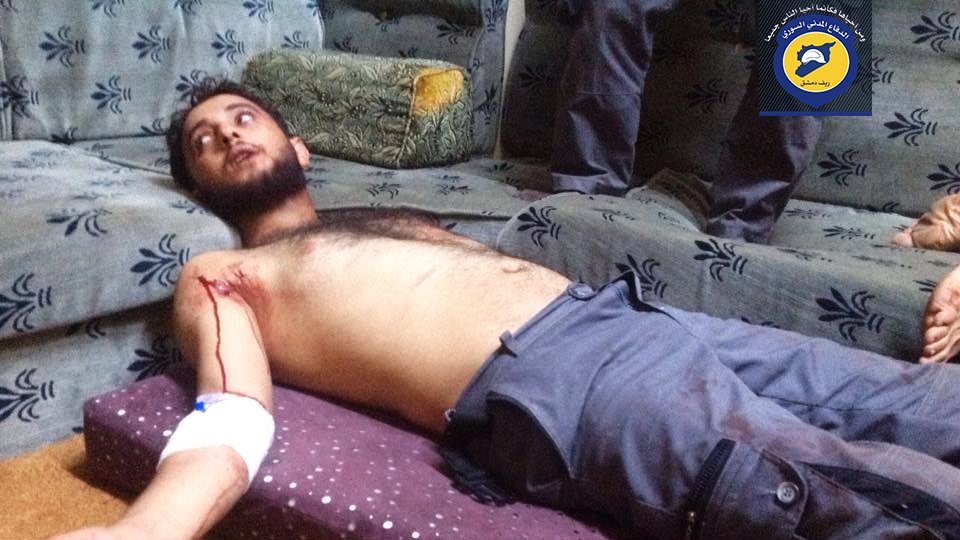
The rescue team of @SyriaCivilDef in #Douma wounded during taking the wounded to hospital under the heavy bombing: image via SCD Rif Dimashq @SCDRifDimashq, 12 September 2016

The rescue team of @SyriaCivilDef in #Douma wounded during taking the wounded to hospital under the heavy bombing: image via SCD Rif Dimashq @SCDRifDimashq, 12 September 2016

"To save a life is to save all of humanity." #TheWhiteHelmets, only on @Netflix September 16th: image via SCD Rif Dimashq @SCDRifDimashq, 13 September 2016

An unforgettable day in #Douma - #EastGouta 13 martyrs In the first day of #EidAlAdha: image via Anas Al-Taän @Anas_altaan, 12 September 2016

An unforgettable day in #Douma - #EastGouta 13 martyrs In the first day of #EidAlAdha: image via Anas Al-Taän @Anas_altaan, 12 September 2016

An unforgettable day in #Douma - #EastGouta 13 martyrs In the first day of #EidAlAdha: image via Anas Al-Taän @Anas_altaan, 12 September 2016

Today was a violent day for #Douma, dozens of shells and rockets killed 13 civilians, including children and women: image via SCD Rif Dimashq @SCDRifDimashq, 13 September 2016
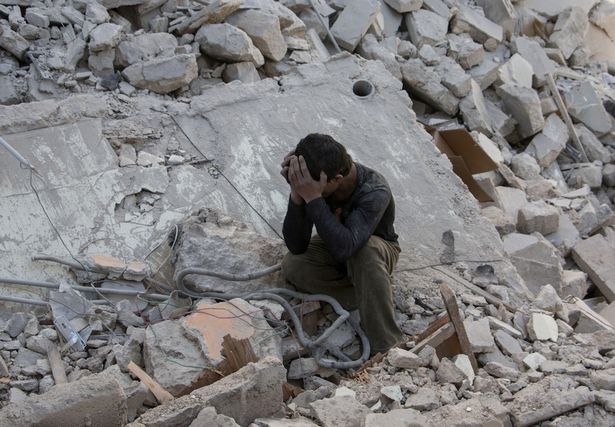
If this photo was of Ground Zero on 9/11 it would be revered as an icon. But it's not. It's #Aleppo: image via Stephen Lautens @stephenlautens, 9 September 2016

In Syria's Aleppo, 'Happy' the monkey is zoo's last resident: image via AFP news agency @AFP, 16 September 2016
Face

Show face to cops, Muslims in Philippine city ordered: image via AFP news agency @AFP, 16 September 2016
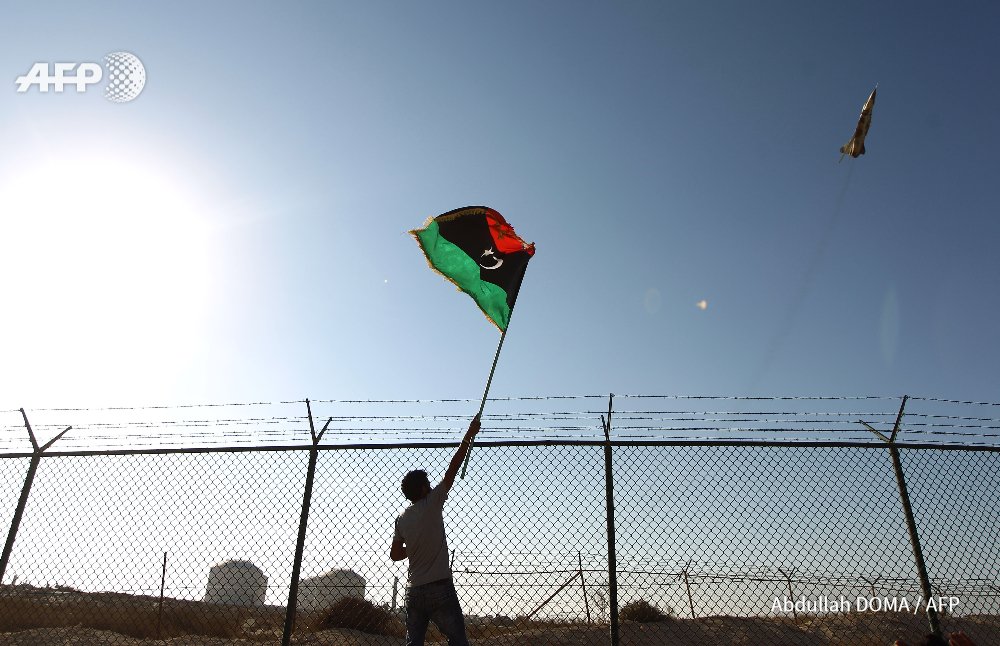
LIBYA - A man waves a Libyan flag as fighter jet flies by at the Zueitina oil terminal. By Abdullah Doma #AFP: image via Frédérique Geffard @fgeffardAFP, 16 September 2016

YEMEN - A woman inspects damage at a factory allegedly targeted by Saudi-led airstrikes in Sanaa. By Mohammed Huwais: image via Frédérique Geffard @fgeffardAFP, 16 September 2016

It's 'Dallas' in Gabon as country awaits key vote ruling: image via AFP news agency @AFP, 15 September 2016

WEST BANK- Israeli soldiers free Palestinian youth in Burin after scuffles with Israeli settlers. By Jaafar Ashtiyeh: image via Frédérique Geffard @fgeffardAFP, 16 September 2016

Indian Muslims offer prayers on Eid Al Adha at the Kharudin Mosque in Amritsar: photo by AFP, 13 September 2016

A girl takes a picture of a lion in the zoo in Frankfurt, Germany: photo by Michael Probst / AP, 13 September 2016

A woman applies makeup to a young girl dressed as the Living Goddess Kumari during the Kumari Puja festival in Kathmandu, Nepal. The festival is a gathering in which young girls pose as the Living Goddess Kumari and are worshipped by people in belief that their children will remain healthy.: photo by Navesh Chitrakar / Reuters, 14 September 2016
Happy Monkey Rocked

A motorist takes cover on a wall as winds and rain from Super Typhoon Meranti lash Kaohsiung, southern Taiwan. The storm is the strongest recorded since Super Typhoon Haiyan developed in 2013.: photo by EPA, 14 September 2016

Residents clean up a flooded street in Xiamen, Fujian province, China, after typhoon Meranti made landfall on September 15, 2016. Parts of Taiwan came to a standstill on Thursday as the super typhoon brought the strongest winds in 21 years. China issued a red alert for waves as the storm bore down on the mainland.:photo by Agence France-Presse, 15 September 2016

Super typhoon Meranti hits Kaohsiung, Taiwan, on September 15, 2016. The typhoon is moving towards the Chinese provinces of Fujian and Zhejiang, after lashing the southern part of Taiwan on Wednesday, leaving close to a million households without power and water supplies: photo by Ritchie B. Tongo / EPA, 15 September 2016

Passengers crowd a railway station on the first day of the Chinese mid-autumn festival holiday in Wuhan, Hubei province, China: photo by Reuters, 15 September 2016
Inflatable Happy Monkey Immersive
Devotees immerse an idol of the Hindu god Ganesh, the deity of prosperity, into the Sabarmati river on the last day of the ten-day-long Ganesh Chaturthi festival in Ahmedabad, India: photo by Amit Dave/Reuters, 15 September 2016
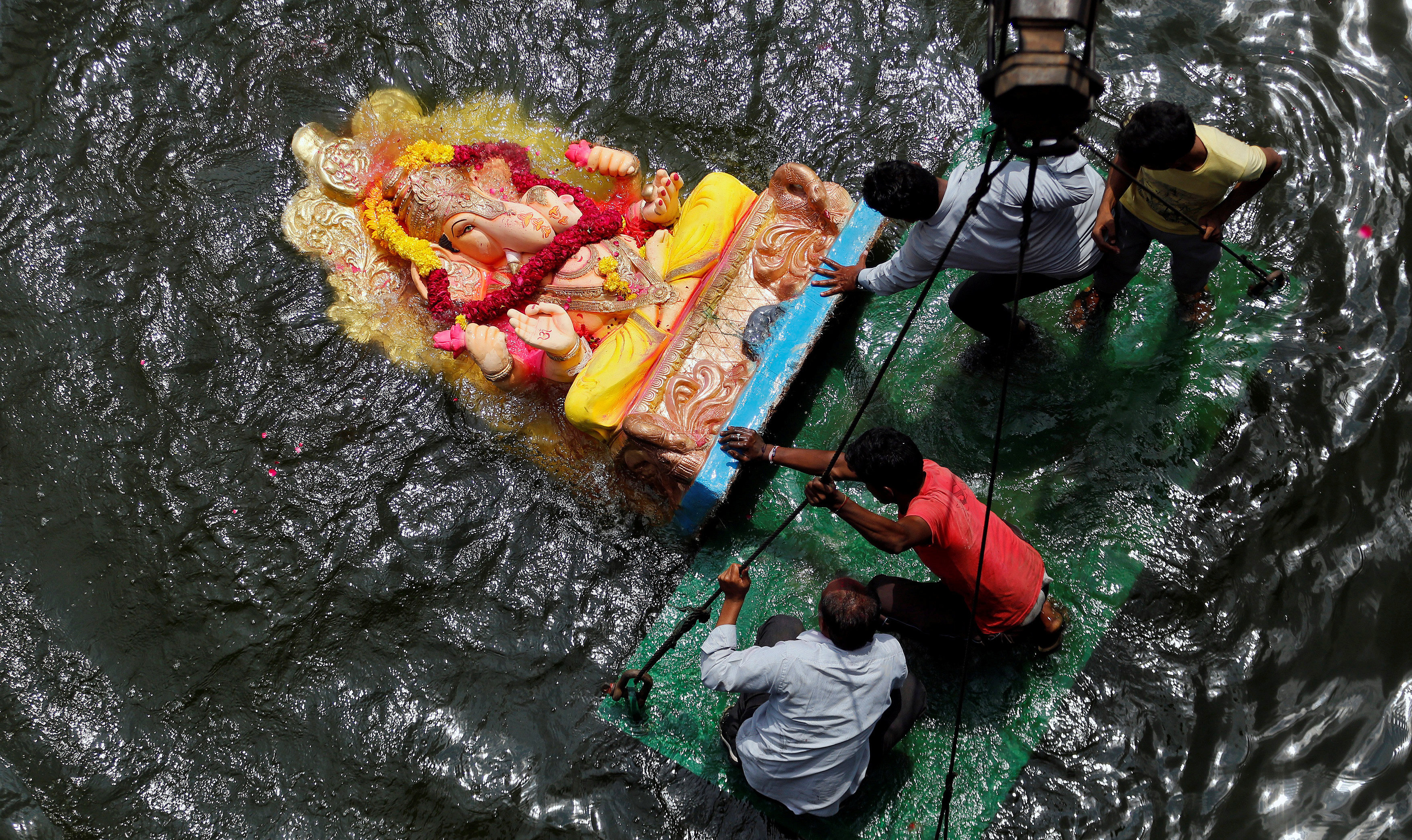
Devotees immerse an idol of the Hindu god Ganesh, the deity of prosperity, into the Sabarmati river on the last day of the ten-day-long Ganesh Chaturthi festival in Ahmedabad, India: photo by Amit Dave/Reuters, 15 September 2016

INDIA - Devotees immerse an hindu god Ganesh during the Ganesh Chaturthi festival in Hyderabad. By @noahseelam #AFP: image via Frédérique Geffard @fgeffardAFP, 16 September 2016
A man collects coconuts thrown as offerings by worshippers into the
Sabarmati river, a day after the immersion of idols of the Hindu god
Ganesh, the deity of prosperity, in Ahmedabad, India: photo by Amit Dave /Reuters, 16 September 2016

A man collects coconuts thrown as offerings by worshippers into the Sabarmati river, a day after the immersion of idols of the Hindu god Ganesh, the deity of prosperity, in Ahmedabad, India: photo by Amit Dave /Reuters, 16 September 2016

A man collects coconuts thrown as offerings by worshippers into the Sabarmati river, a day after the immersion of idols of the Hindu god Ganesh, the deity of prosperity, in Ahmedabad, India: photo by Amit Dave /Reuters, 16 September 2016
Happy Monkey Burns
A French riot police officer gestures as he is surrounded by flames, during a demonstration against the controversial labour reforms of the French government in Paris: photo by Thomas Samson/AFP, 15 September 2016
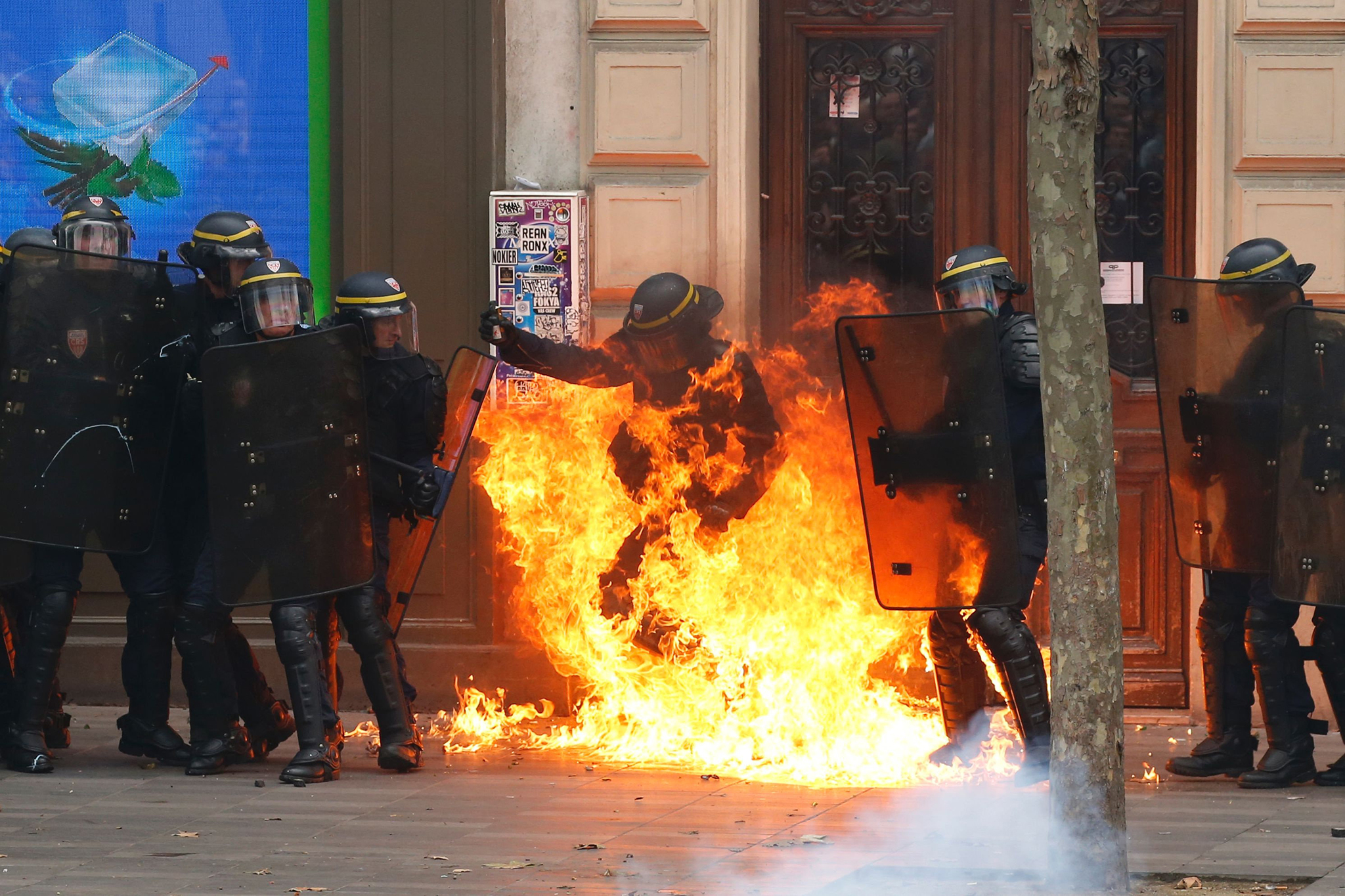
A French riot police officer gestures as he is surrounded by flames, during a demonstration against the controversial labour reforms of the French government in Paris: photo by Thomas Samson/AFP, 15 September 2016

FRANCE - A riot police officer is surrounded by flames during demo against labour reforms in Paris. By Thomas Samson: image via Frédérique Geffard @fgeffardAFP, 16 September 2016

#France #Flames during a demonstration against the controversial labour reforms in Paris #AFP Photo by Thomas Samson: image via AFP Photo Department @AFPphoto, 16 September 2016

#France #clash during a demonstration against the labour reforms #LoiTravail in Paris #AFP Photo by Thomas Samson image via Aurelia BAILLY @Aurelia BAILLY, 16 September 2016

#France #clash during a demonstration against the labour reforms #LoiTravail in Paris #AFP Photo by Thomas Samson image via Aurelia BAILLY @Aurelia BAILLY, 16 September 2016

#France #clash during a demonstration against the labour reforms #LoiTravail in Paris #AFP Photo by Thomas Samson image via Aurelia BAILLY @Aurelia BAILLY, 16 September 2016

FRANCE - A protesters speaks with a police officer during demo against labour reforms in Bordeaux. By Georges Gobet: image via Frédérique Geffard @fgeffardAFP, 16 September 2016

FRANCE - A demonstrator holds up a flare during a demonstration against labour reforms in Nantes. By @LoicVenance: image via Frédérique Geffard @fgeffardAFP, 16 September 2016
People take part in a demonstration against the French government’s labour law reforms, in Marseille, southern France: photo by Anne-Christine Poujoulat/AFP, 15 September 2016
People take part in a demonstration against the French government’s labour law reforms, in Marseille, southern France: photo by Anne-Christine Poujoulat/AFP, 15 September 2016
Happy Monkey Has Left the Error Forest
Members of the public look inside Ikea’s ‘The Dining Club’ pop up restaurant, cafe and shop in Shoreditch in London, England. The Scandinavian furniture company has opened a ‘pop-up’ ‘do-it-yourself restaurant, cafe and store.: photo by Dan Kitwood, 13 September 2016

Members of the public look inside Ikea’s ‘The Dining Club’ pop up restaurant, cafe and shop in Shoreditch in London, England. The Scandinavian furniture company has opened a ‘pop-up’ ‘do-it-yourself restaurant, cafe and store.: photo by Dan Kitwood, 13 September 2016
Brecht: Everything Changes
Everything changes. You can make a new start
With your last breath.
But what has happened, has happened. And the water
You have poured into the wine, you can
Not pour back out.
What has happened, has happened. The water
You have poured into the wine, you can
Not pour back out, but
Everything changes. You can make a new start
With your last breath.
With your last breath.
But what has happened, has happened. And the water
You have poured into the wine, you can
Not pour back out.
What has happened, has happened. The water
You have poured into the wine, you can
Not pour back out, but
Everything changes. You can make a new start
With your last breath.
Alles wandelt sich. Neu beginnen
Kannst du mit dem letzten Atemzug.
Aber was geschehen, ist geschehen. Und das Wasser
Das du in den Wein gossest, kannst du
Nicht mehr herausschütten.
Kannst du mit dem letzten Atemzug.
Aber was geschehen, ist geschehen. Und das Wasser
Das du in den Wein gossest, kannst du
Nicht mehr herausschütten.
Was geschehen, ist geschehen. Das Wasser
Das du in den Wein gossest, kannst du
Nicht mehr herausschütten, aber
Alles wandelt sich. Neu beginnen
Kannst du mit dem letzten Atemzug.
Das du in den Wein gossest, kannst du
Nicht mehr herausschütten, aber
Alles wandelt sich. Neu beginnen
Kannst du mit dem letzten Atemzug.
Impact of a drop of water on a water-surface: photo by Roger McLassus, 2006
Bertolt Brecht: Alles wandelt sich / Everything Changes, c. 1954: English version by TC


An Indian Muslim boy runs as he holds a speaker during the Eid Al Adha festival at the mosque inside the Taj Mahal in Agra: photo by AFP, 13 September 2016

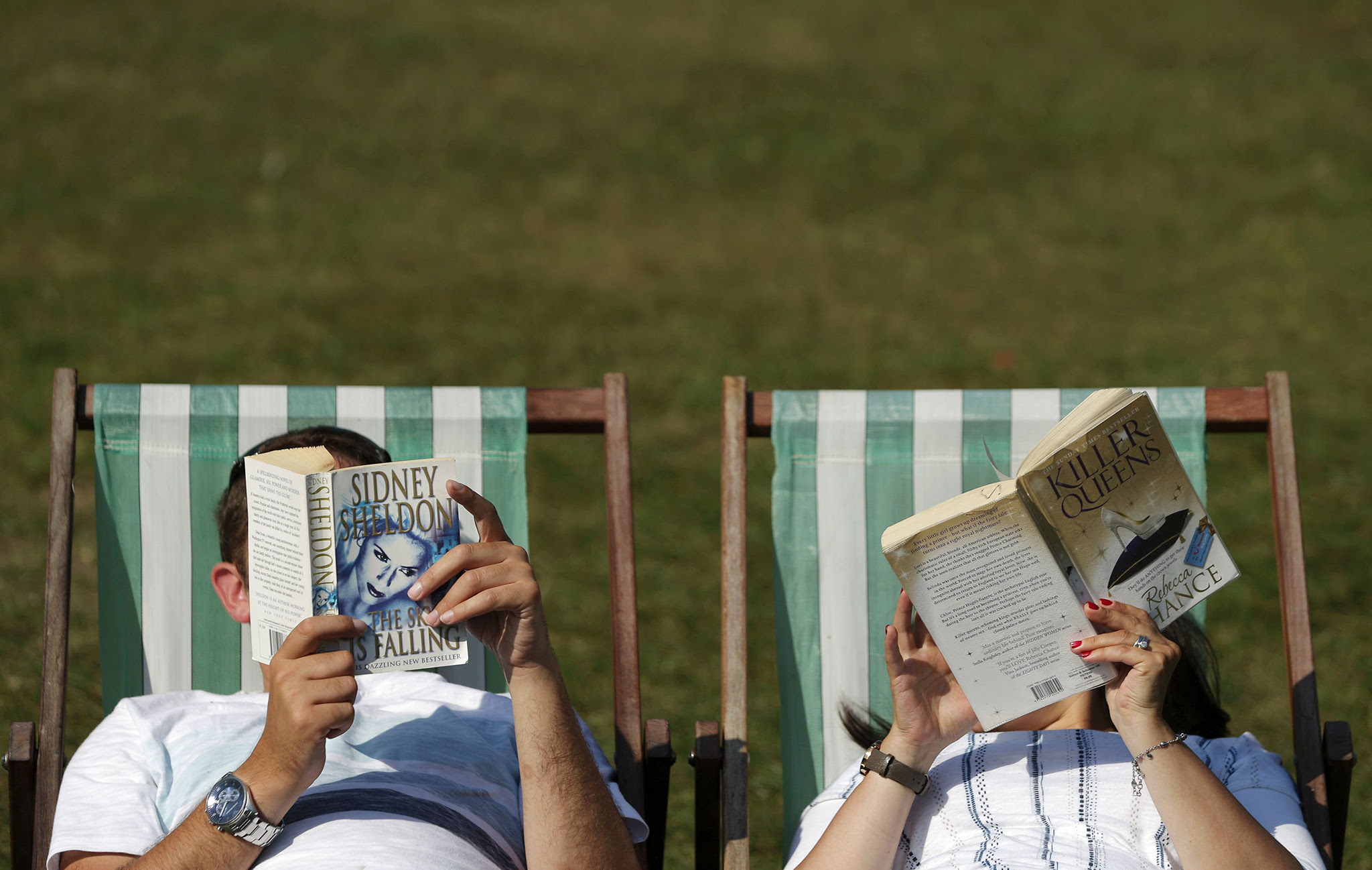






No comments:
Post a Comment